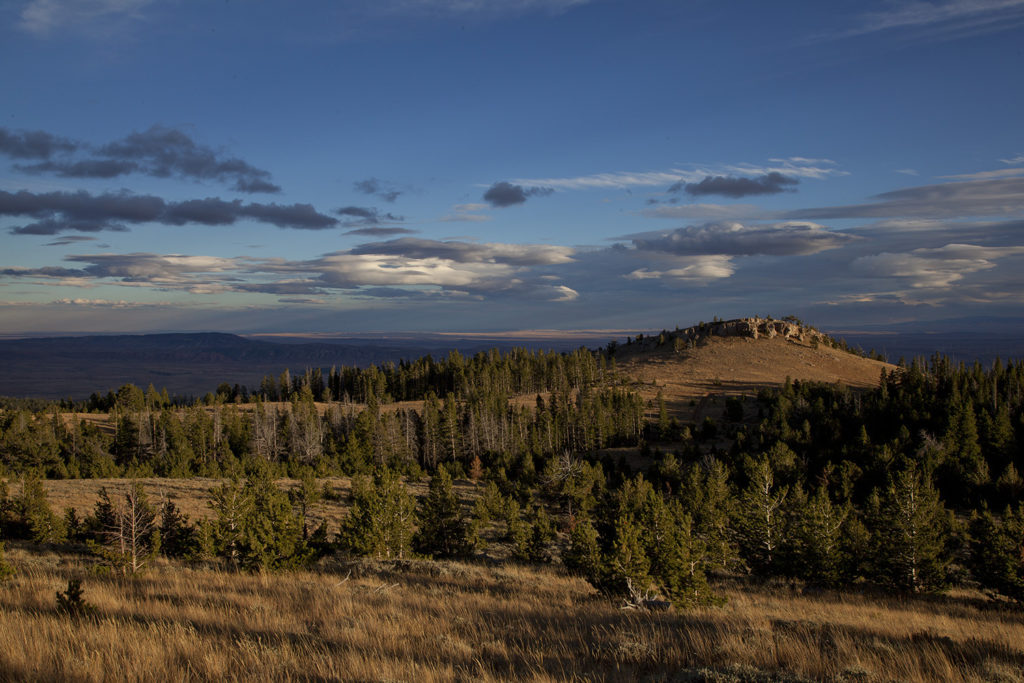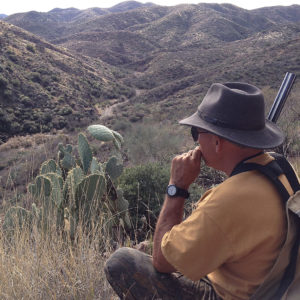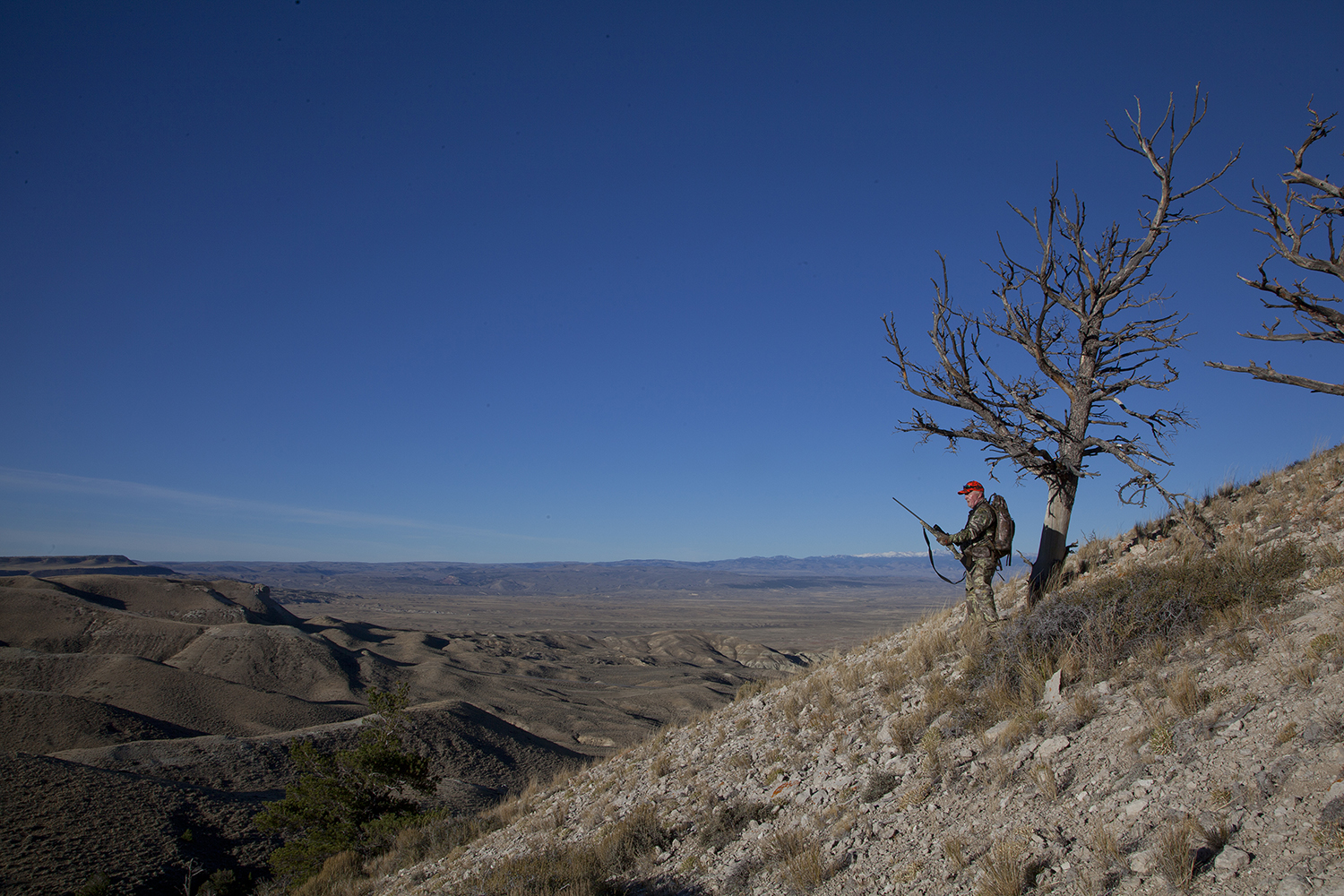ABOUT A WEEK AGO, A WOMAN ON FACEBOOK POSTED A DECEPTIVELY SIMPLE QUESTION: “WHY DO MEN HUNT?” I DON’T THINK she intended to be provocative, but whether she wanted to start a heated argument or not, she certainly succeeded. Since I’ve been a hunter all my life, I was curious to find out how the responses to her question described my motives and psyche.
Looking down through these comments, I saw that various people thought of me me as one or more of the following: 1) a hypocrite who talks about living with the planet while entertaining myself by killing my fellow creatures; 2) a control freak who hunts to establish my dominance over lesser creatures; 3) a fiend driven by an excess of testosterone; 4) a sadist who kills simply for the pleasure of shedding blood; 5) a eunich who attempts to compensate for his lack of sexual prowess by exerting “extreme ultimate power” over other animals; 6) a male who is driven to kill by the instinct to procreate; or 7) a person so lacking in self esteem that he must kill to cover his weakness and impotence. These insights are offered mostly by people who freely admit that they do not hunt and have never hunted.
Any effective answer to the original question would fill most of an encyclopedia. I have a stack of books here on my desk that attempt to respond, and I’m working on another one myself. Here, I’d like to make just one or two points.
First, it is not possible for a human to live on earth without killing. Taking the vegan pledge doesn’t relieve a person of the responsibility for the death of many fellow beings. We all have an effect on other living beings, whether we eat meat or not. We demand space, water, and food, all of which deprives other living things of resources they must have in order to survive. We are changing the climate with our appetite for energy; we kill millions of animals on our highways; we pollute the world’s air, water, and soil. The effects of these elements of our lives are infinitely more pervasive and dangerous to wild land and the wildlife it supports than any hunting that currently occurs in North America.

An elk hunter’s view at the top of the world. (Photo copyright 2018, Chris Madson, all rights reserved)
Those who depend on vegetable sources for protein should take a hard look at the impacts agriculture has on the natural world. Take a look at a harvested soybean field, which is about as welcoming to life as a Walmart parking lot. And the vegetarian kills plants. Is this somehow less objectionable than killing animals? We know that plants are sentient, capable of sensing their environment, reaching for key nutrients, even responding to sound and touch. I submit that the distinction we make between plants and animals is a distinction of convenience, nothing more. We make it because an objective ecological analysis would reveal an uncomfortable reality: The vegetarian kills to live, just as surely as the omnivore. Some may consider this as a manifestation of original sin, a trap of immorality that we cannot escape. I prefer to see it as an affirmation of our inextricable link with the land. Either way, it is a fact of life.
Industrial-scale production of food as it is practiced in the civilized world today is unspeakably violent, whether the final product is cotton, soybeans, chicken, or beef. The reality of domestication itself may be the most nakedly violent projection of human dominance in our long history on the planet. None of us can completely divorce ourselves from these realities of western civilization, but, as strange as it may seem, hunting is an effective way to minimize support for some of the most distressing of them.
Nearly all the meat my family and I have eaten over the last forty years has been taken in the wild. I have to face the violence that provides that meat. I see the life fade from the eyes of the beautiful wild things I take to feed my family. I confront the natural process that brings life from death. I do it with humility and gratitude. I do it sustainably, partly because that is an element of the ethical debt I owe to the animals I have killed and partly because, from a very practical point of view, I depend on the continued well-being of the game populations that support me.

A Gambel’s quail hunter under the Mogollon Rim in central Arizona. (Photo copyright 2015, Chris Madson, all rights reserved)
Wild country has always been the centerpiece of my life. I enjoy wild places in many ways— hiking, backpacking, canoeing, feeding birds in the backyard. These are all sources of insight and peace in my life. But they also reinforce the mistaken feeling that I am somehow apart from the natural world. When I take the role of predator, I am a part of the natural world. I feel that, and the animals I pursue feel it as well. I am a participant, not an onlooker. I come away from the hunt with an understanding of wild places and wildlife I could not get any other way. And I come away with a sense of belonging, a reverence for the world that supports me, and a fundamental understanding of my place in it all. For me, hunting is, at once, a practical harvesting of sustenance, an immersion in places and processes outside of my otherwise urban way of life, and, finally, a source of spiritual renewal.
I have had this conversation with many people who have never hunted. Now and then, I meet a person who is willing to consider the history and prehistory of human hunting, who is willing to stretch his or her imagination to grasp some of what I’m trying to express. More often, I simply can’t find a way to communicate matters of this depth. Occasionally, I’m accused of self-deception, outright lying, or a cynical effort to camouflage my real intentions. I can only say that I am being as honest as I know how in my effort to describe a central part of my life, a communion that I have inherited from generations of hunters, whose traditions and emotions may be older than the human species itself. I don’t claim to speak for any other hunter, only myself. I cherish the hope that some of you who read this will do me the courtesy of believing that I am at least sincere.

Leave a Reply
You must be logged in to post a comment.